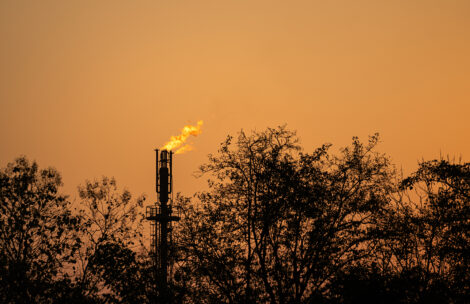Garfield County weighs in on methane rulemaking
Proposed regulation requirements could add major costs to landfill capital, operations
PRESS RELEASE
July 17, 2025
Garfield County is participating in discussions surrounding proposed state greenhouse gas reporting requirements that could force municipal solid waste landfills to either make costly investments in their facilities or close their doors.
In April, the Colorado Department of Public Health and Environment’s (CDPHE) Air Pollution Control Division proposed a rule to its Air Quality Control Commission (AQCC) to reduce methane pollution from municipal landfills. That rulemaking hearing is slated for August 2025.
“The Air Quality Control Commission has chosen to regulate methane emissions from municipal landfills and is determining whether a collection system is required or not,” Garfield County Deputy County Manager Bentley Henderson told the Board of County Commissioners. “There are two other pieces to it, one is the nature of ongoing testing and the other is certain types of intermediate cover.”
Under proposed rules, a landfill emitting methane at or above 200 parts per million would need to upgrade its gas collection and control systems (GCCS).
In mid-May, Garfield County requested and received “party” status in the regulation, allowing greater comment on the process. The county is also spearheading a 15-county coalition from across the state that is looking to lessen the impact of the proposed regulations.
The coalition is requesting continuance to allow interested parties more time to review and analyze the regulations. The commission will consider that request at its July 17 meeting. Garfield County Commissioner Perry Will, along with Mesa County Commissioner Cody Davis and Commissioner Gene Glover from Rio Grande County, have all agreed to speak on behalf of the coalition regarding the continuance. A virtual pre-hearing conference will take place on July 28.
In October 2024, the AQCC adopted changes to Colorado’s greenhouse gas reporting requirements for municipal solid waste landfills.
According to CDPHE, the proposed rule requirements include:
Garfield County Landfill Manager Deb Fiscus told the board that the gas-control system could cost roughly $4 million on the capital side, plus an additional $750,000 to $1 million to operate annually.
“That alone would double our tipping fee,” she said of the operations costs.
“And that’s at the size of our landfill,” Henderson added. “To think that any county or city that has a landfill can absorb those kinds of additional expenses is unrealistic. We just can’t do it, especially given that most of these landfills are set up as enterprise funds, which are obligated to fund themselves.”
Under the proposed regulations, organic bio-cover costs are estimated at between $60,000 and $80,000 per acre and would require removing the current intermediate cover and installing gravel and compost at the landfill.
Henderson explained that the proposed regulations include collecting and burning the methane without an open flare, and the landfill would need to produce a certain amount of the gas to keep the flare burning, or else it would have to supply alternate fuels to keep it lit.
“These regulations would create more emissions than they would reduce,” Fiscus said.
“The unintended consequences of this are beyond logic,” Henderson added.
The AQCC is currently deciding whether or not to postpone its August meeting until the end of the year, which would provide the coalition more time to assess the proposed regulations.
“Once we get beyond this pre-hearing stage, there will be a shift in the approach,” Henderson added. “There will be more aggressive outreach to state legislators and state senators, all of which will likely try and work with CDPHE to look for alternatives. There will probably be some regulation, but what we want to do is try and limit the expense and exposure for the taxpayers of Garfield County.”
The coalition has submitted an alternative proposal to the state.


